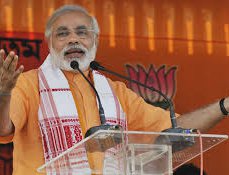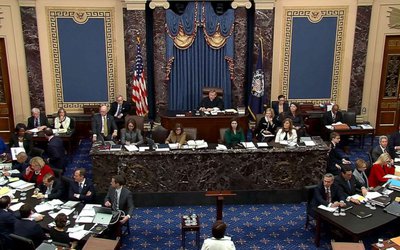
At a political rally earlier this week the opposition Bharatiya Janata Party (BJP)'s Prime Ministerial candidate, Narendra Modi, termed the ruling Congress party as a ‘termite’. He said, ‘they always practice politics of manipulation and fixing. This has been the hallmark of Congress party’.
And the Congress seems to be seriously living up to the allegation. Earlier this month, Sri Lanka held the Commonwealth Heads of Government Meeting in Colombo. The biennial meeting brings the heads of government from all Commonwealth nations together to discuss various contentious issues especially the ones affecting the member nations. However, the meeting this time grabbed headlines for all the wrong reasons. Itcame under a cloud after the heads of government from countries including India , Canada and Mauritius boycotted the summit over the host country's President Mahindra Rajapaksa’s human rights record.
Although Rajapaksa’s 2009 brutal suppression of the long-running Tamil Tiger insurgency drew criticism from many corners especially over the alleged excesses by the government forces the decision taken by Manmohan Singh’s was in no way a show of solidarity to the ethnic Tamil population in Sri Lanka. It was rather, as Modi alleged, another instance of Vote Bank politics. As India goes to polls next year the Congress did not want to risk losing support of two main Tamil parties in its own Southern state, the DMK and the AIDMK. It was simply a strategic move to court the Tamil vote.
The Indian state of Tamil Nadu enjoys very close cultural and historical ties with the Sri Lankan Tamil population. Parties like DMK and AIDMK have been staunch supporters of the Tamil movement in Sri Lanka and have time and again criticized the central government for not taking a strong stand against Rajapaksa’s government. This time around, Tamil Nadu Chief Minister J. Jayalalithaa from AIDMK got the state assembly to adopt a unanimous resolution urging the prime minister not to go to Colombo. The Centre just obliged.
The Manmohan Singh government's move may appease the domestic vote bank in the south of the country, but the diplomatic snub to Colombo could be costly for the relations with the island nation. It could also cost the South Asian power its leverage in the region. Two immediate beneficiaries would be Pakistan and China. Not surprisingly, Pakistan already capitalized on the situation, sending in a powerful delegation headed by Prime Minister Nawaz Sharif and showing firm support to the Rajapaksha government. India’s move will surely further enhance cooperation between Pakistan and Sri Lanka. Also, it is not hard to predict that China, whose diplomatic, economic and military footprint in Sri Lanka and across south Asia has been growing bigger and bigger, will pounce upon the situation too. All this will be a big setback for India.
The decision to not participate in the meeting will also have serious repercussion on the Congress’s image. It has already received flak for taking decisions of national importance under pressure from regional parties. With elections just round the corner, the Congress has bolstered its critics that it has been playing on Vote Bank politics for petty partisan gains at the cost of broader national interest .
If the decision will actually help Congress or not in the 2014 election is yet to be seen. What’s already visible is that Congress will do everything to remain in power, even by compromising national interest to please its own vote-bank. Well, if other parties would have acted differently is also open to question. But since the Congress is in power now, the focus of attention has been on it.
- Ukrainian Crisis And The World (Dis)Order
- Apr 22, 2022
- China’s Cautious Steps In The Graveyard Of Empires
- Aug 18, 2021
- Foreign Aid On The Fence!
- Aug 08, 2021
- Communist Party of China centenary celebrations Reading between the lips
- Jul 14, 2021
- Second Wave Of Covid-19 In India: Deadly Blow To The Economy
- Jun 23, 2021
















